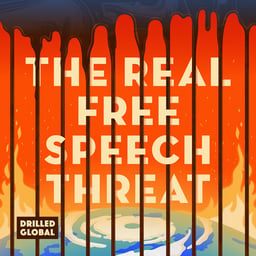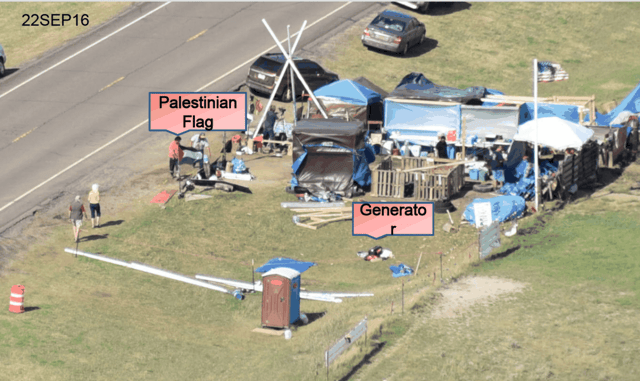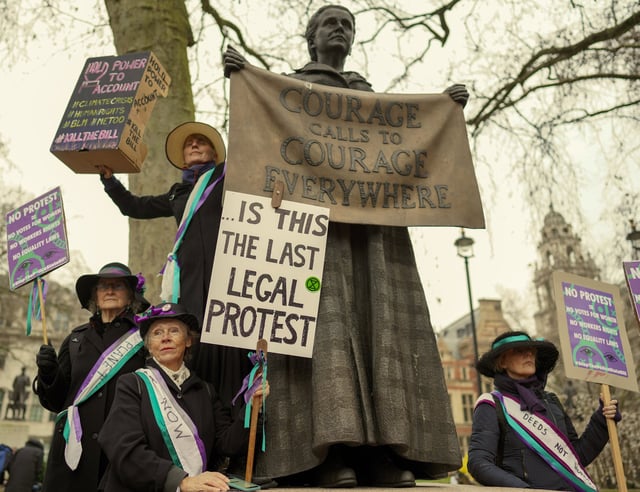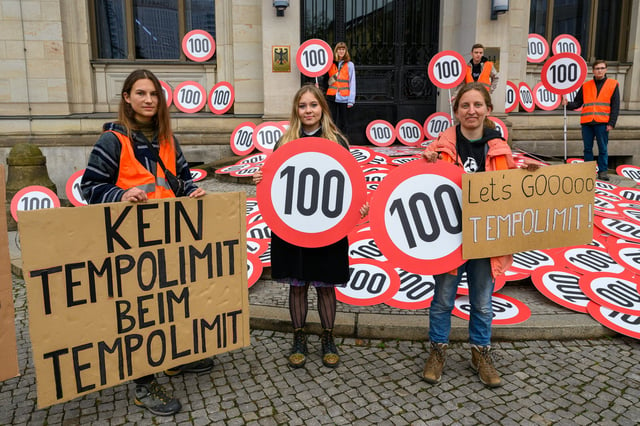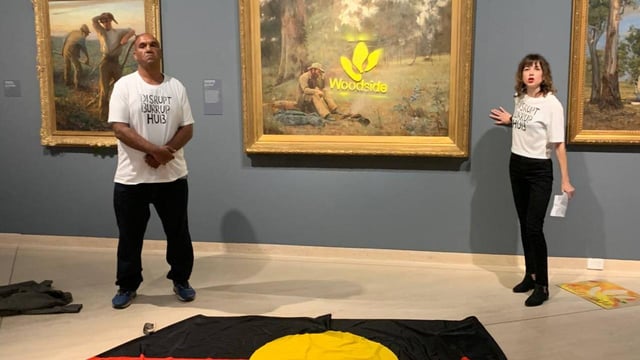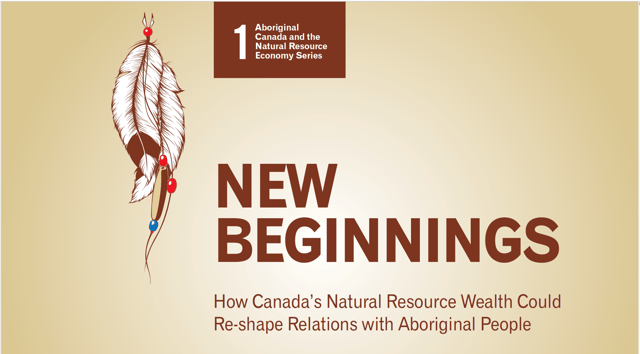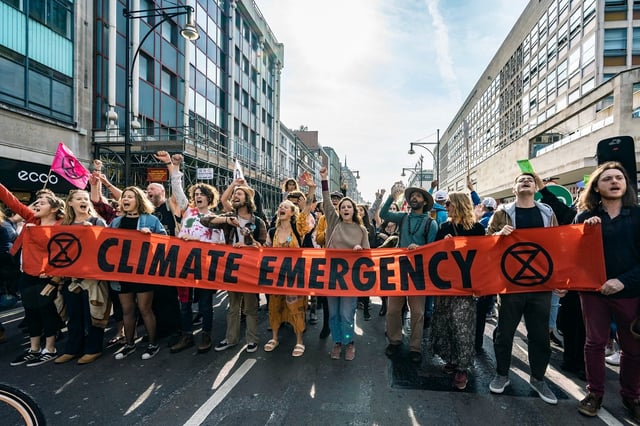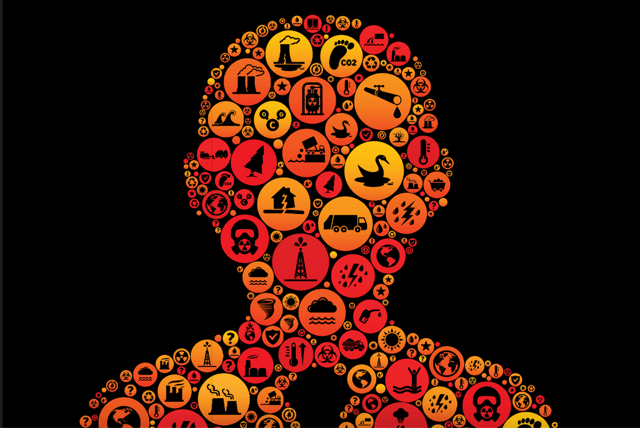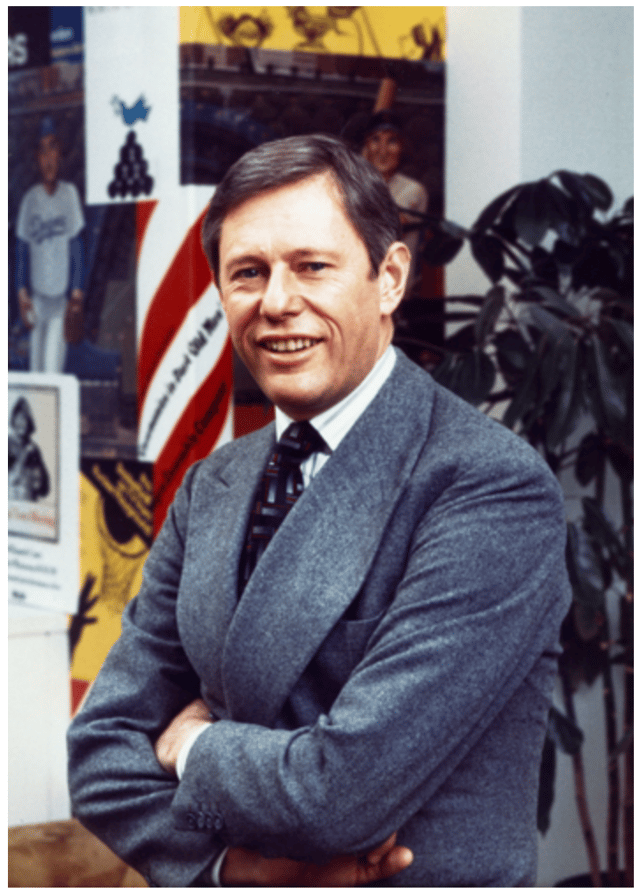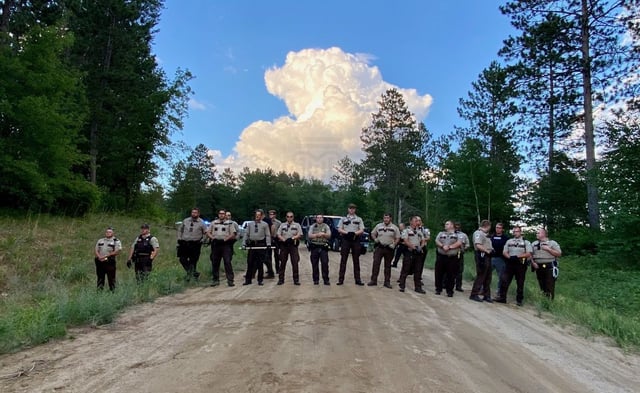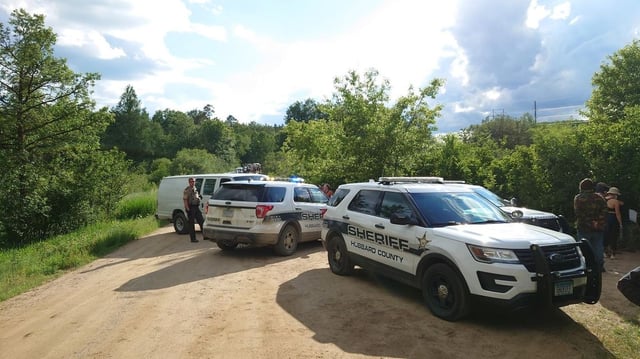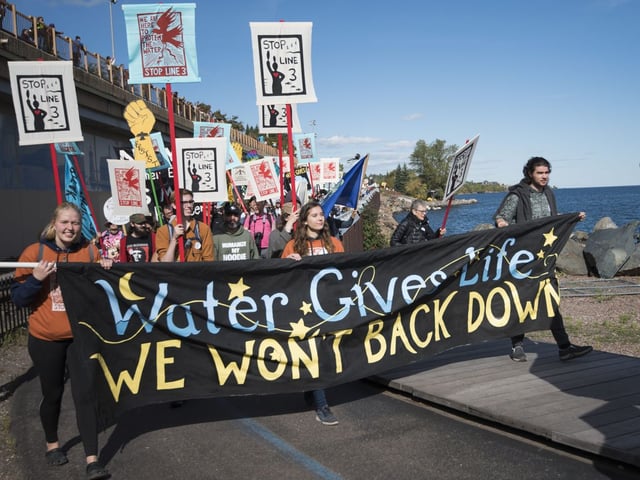Drilled • Season 10 Episode 2
S10, Ep2 | Disha Ravi on Becoming the “Radical” Face of Protest in India at 22
About This Episode
Transcript
[00:00:00] Amy Westervelt: Before you can pass a policy that criminalizes protest ,or show up at someone's house and bungle them off in an unmarked van, you have to spend a good few years making sure a substantial portion of the population will be on your side and not theirs. And the best way to do that is to vilify and dehumanize the activists in question.
To make them annoying mosquitos that everyone wants to swat away, even if they agree with their cause. Globally, the efforts to cast climate activists in that light have been pretty successful. It is not uncommon to see everyone from prominent climate scientists to moderate politicians criticizing the tactics of protesters a whole lot more than they criticize the criminalization of protest.
That doesn't just happen. It's carefully orchestrated. And in recent years, mainstream media has mostly been assisting in that effort. When it covers activism at all, which is rare, the media is largely critical of it. Headlines describe climate activists as radical, decry disruptive tactics, or focus on the cost that this or that protest has inflicted on a business. Articles will sooner raise an eyebrow at who's paying the activists than engage with the cause that's driving them. The reality is that the vast majority of climate activists are smart, joyful, deeply caring individuals who are doing a pretty brave thing by putting their lives, their livelihoods and their bodies on the line for something they believe will protect all of us. In an effort to re -humanize them, we'll be bringing you their stories directly throughout this series.
Today, we'll meet Disha Ravi, the co founder of Fridays for Future India. She's a bright and charming 24 year old who's had her life on hold for more than two years after being arrested for sedition for participating in a protest connected to the farmers movement in India.
That's coming up after this quick break.
[00:02:39] Disha Ravi: I'm Disha Ravi, I'm a climate justice activist from Bangalore, India. I am 24. I primarily volunteer with the Fridays for future India and Mappa, and I'm really excited to be here. My pronouns are she her.
[00:02:55] Amy Westervelt: And maybe we can start with just how you started to get involved with climate activism in the first place. What kind of drew you into it?
[00:03:04] Disha Ravi: So it was actually a bunch of things, because when I was really young, my grandparents who are farmers, still farmers, they were experiencing the water crisis because like most farmers in India, they were heavily dependent on underground water and there was depleting. And they didn't have access to resources or other water resources.
And it made me question, but when I was very young, why this was okay. And then when I moved places with my mother. It was the same situation everywhere, where water was seen as almost like a luxury. And it wasn't until I, you know, left my city and my state that, and I, I traveled outside the state and I realized that this is not actually true.
You can just get water whenever you want to because, and in my grandparents' house, they get limited electricity even now, like only for a few hours early in the morning and the, and in the evening. And only then can you access water. And even then that's. It's limited water. And it was when, when my mom moved places, we'd have to, we'd had like a shared community well be where she'd have to go fetch water from.
And this was really wild to me, but it was normalized to a large extent. So I didn't think much of it until I went out and I was like, wow, you can just get water anytime, which was really surprising to me. So that's when I began to question why there is different levels of access to such a basic necessity.
And that's when I went down a rabbit hole and understood this was because of A, the climate crisis and also because my state especially depends a lot on underground water, especially farmers, but not just in my state, but across the country. Now the situation is better because they have canals and they started using rainwater harvesting, but, but that's just my grandparents, because the situation around the country is getting worse. And even in like the same town in different parts, it's, it's bad. So a lot of this made me question things. And that's how I got into it.
[00:05:14] Amy Westervelt: That's fascinating. And when did you start getting involved with Fridays for Future?
[00:05:19] Disha Ravi: So it was in 2019, March, when the first global strike happened. So back then I was still in college and I was essentially volunteering with a bunch of environmental movements and a bunch of things that my college was doing, but I realized that there isn't conversations on climate and how we're being impacted by climate.
There is a lot of conversation about environmental impacts and deforestation and biodiversity loss, but not about varying and increasing temperatures. And that's when I came across Fridays for Future and I was like, huh, that seems cool. And once again, I went down a rabbit hole and I was like, Oh, this makes a lot of sense.
And I essentially just posted on Instagram saying, Hey, this looks like something cool that I would really like to start is, is, was, would anyone be interested? And my friend connected me to another person who had posted something very similar. And the other person, she just so happened to be in my city.
And we essentially started like the Fridays for Future India Instagram page and a bunch of other people from different cities reached out. That's how we started. It was digital at first until like the first strike we had, where we went. Uh, and then we started working on the ground more and we worked with a lot of older environmental movements and learned a lot from them.
And yeah, it was really life changing because that community taught us so much and they still continue to teach us so much.
[00:06:52] Amy Westervelt: Yeah. Okay. So I want to hear about What led up to your arrest and also have you kind of walk me through that day and what you thought was going on, whether it was surprising or you had some knowledge that this was going to happen, all of that kind of stuff.
[00:07:14] Disha Ravi: So my arrest itself, I'm legally not allowed to talk about a bunch of things, but I can tell you what I am allowed to talk about. So when the farmers movement essentially. off and they started taking to the streets, the environmental, youth environmental, as well as climate movements in India, they essentially formed a coalition.
It was called Greens with Farmers. The Greens was kind of like, um, a dig at the media because the local media and the national media likes to call us Greens, which is really weird because it. feels like they're not taking us as seriously, but yeah, we were trying to reclaim that. So we, we formed a coalition called Greens with Farmers and we were working, there were like so many groups involved and so many of us were on ground, um, in our own regions.
Some people were in Delhi where a lot of farmers from across the country had set up camp to because in India, what happens is unless Protests are in Delhi, where it's the capital and where, you know, most of the governments are. Unless you're seen by them, you don't actually get heard. So you could have like a massive protest in the rural region or even an urban region, but you won't necessarily be heard unless it's close to power in some.
in some manner, which is why they had gone to Delhi. In my own city, they had farmers from my own city were having multiple protests in various parts of the city. I had joined a few of them. They had invited me to speak at some of them to showcase youth solidarity. So there was a lot going on. And it was a month long, like it was so many months of campaigning and It began to get international attention when Rihanna tweeted about it.
The funniest thing I will tell you is once when the police asked me if I knew Rihanna and I was like, Oh, I wish I knew Rihanna. And I was, in my head, I was like, wow, this would be so worth it if I knew Rihanna. Um, but yeah. And suddenly everyone's talking about it internationally, which was good because India doesn't like looking bad in front of international media and this was doing exactly that and then Greta tweeted about it and it was going all over the place and she tweeted the toolkit that I was loosely associated with and it was interesting because I didn't think there was anything.
I don't, I still don't think there was anything wrong with the toolkit, but the toolkit essentially was explaining what's happening to different audiences. Because there was a deliberate effort by national media in India to paint the farmers in bad light or not even talk about it. So it was both these ends.
So we had to very, very actively push for their narrative to be heard, uh, which was what the toolkit did. linked to some resources and some things the farmers on ground had written directly or people who were in touch with them had written. It was being updated with protests that were happening both in the country and outside the country.
A lot of them were solidarity protests, especially outside the country, obviously. And they had called for, um, a 26th in India. It was very last minute. And apparently a lot of This part I'm completely unaware about and a lot of international groups had also done the same and that ended up leading to violence both in India and in other countries where I think they essentially spray painted something on the Indian embassies.
I'm not sure about this part because they accused me of all these things and I was like, wow, I had literally no idea. And there was violence because the police got violent and then the farmers got violent. There was a huge clash between the two. There were injuries on both sides. And it was a coincidence that it was that an international day of solidarity was called by the climate movements on the same day.
To us, because it was like an important day because it's Republic Day. So we knew India would be getting attention generally. I'm guessing the farmers thought the same, but the two days were actually a coincidence, but because the toolkit said 6th of January, which was Republic Day and which was the day the violence happened, which.
We honestly aren't tied to in this in any manner and we didn't know about it until it like after it happened and we heard about it in news. I actually had a very peaceful Republic Day because it was a holiday and I just slept in. I had no idea until the next day and I didn't make much of it because a lot of protests, especially in Delhi, end up being violent.
So It is concerning, but it isn't new, so I wasn't surprised. And then one month later, it's suddenly becoming discussion again. And the only reason it got so much attention was because it was mentioned on Republic Day. So it was seen as a conspiracy where R2LK somehow manufactured the violence that happened on Republic Day.
day and that it led and inspired people to be violent and attack the police, not just in India, but also outside India. So it was seen as this master plan to paint India as bad in the eyes of everybody, which is why we got charged with sedition because it was seen as a big conspiracy. Interesting that that's how.
They tried to position it. Did police just like show up at your house to arrest you? Were you told to go to the police station and surrender yourself? I didn't, I didn't expect it at all. When Greta tweeted that I think it would become such a big deal, but suddenly it blew up and. People were pissed, like it didn't blow up in a good way.
And I was like, oh shit. And suddenly we were being called like really weird names. We were called the Toolkit gang. Suddenly Toolkit became a bad word. It was just blowing up and I'm like, what is happening? And even then I didn't think it would actually lead to
a were really pissed with it and they started making these really weird ties and they were like this toolkit was made to defame India internationally and I was like what? So all of this was like news to us and some of the information on that was so old was contributed by so many people that I didn't even know half the things on that.
Um, and they were just finding these super random things. I remember them being really pissed that Human Rights Watch had put India's human rights at like a very low number and they'd given a lot of reasoning and that pissed them off too. I thought, I was hoping it would die down, but the right wing communities essentially filed a case against the creators.
They didn't know who the creators were, but uh, the FIR. Basically a first investigation report or just like what you file when you want to investigate something and then it becomes a case basically. And then the next day the, I think the Delhi chief of police or someone, I am not sure who exactly, but someone very hired up in the Delhi police is giving like a press conference saying that they will catch the makers of the toolkit.
And even then I wasn't, uh, worried because There is nothing wrong in the toolkit. So even then I just, I just thought it would die down, but I did end up contacting a bunch of lawyers who, who support a Fridays for Future India quite a bit, because this is not the first time we've got in trouble, especially with the Delhi police.
So I contacted the same people and they said the same thing that there is nothing to worry about because it is a very innocuous, um, few pages. So I just stayed home and I was like, if they want to come question me, they can. And I was very confident that I wouldn't get arrested because once again, it is not a big deal at all.
Um, I was very happy to answer their questions. I didn't think anything would happen. When they came, I wasn't surprised. I had told my mother at this point, I was like, if the police come, just contact my lawyers. I was not worried and I answered their questions. I was very cooperative and they just, they just arrested me.
They literally used my paper from my house and my pen from my house to write out an arrest warrant. They didn't come with an arrest warrant. Wow. Yeah. Uh, they totally wrote it out. You're like, asking your mom if they can borrow a pen. Yeah, they did. And my mom made them tea. I'm so annoyed with her that she made them tea.
Um, so. That's amazing. Wow. For my own pen. Yeah. Um, and my paper and they just wrote the arrest warrant and I was flown to Delhi also. This is wild to me because this is like the second time I was ever flying, flying ever, and I was just like, what is happening? And I've never been to Delhi, so it's the fact that they're accusing me of orchestrating that something that happened to Delhi before that, having ever been there.
The first time I was there was when I was arrested and I was like, This is so wild, so I didn't see it coming, but luckily my lawyers were from Delhi. My mom finally gained consciousness enough to call them. The police had given the, his number to my mother and my mom shared that with the lawyers and they were calling to check, uh, what's going to happen next and all of that.
And yeah, that's pretty much it. So I didn't think I'd actually get arrested at all. I was having a very peaceful day. It wasn't Saturday, so I was just like. Yeah, it's okay if they come. I didn't see it coming. I mean, I knew they'd come to Delhi. Delhi is on the other side of the country. Bangalore is in the south.
Delhi is in the north. How long is the flight for you to go to Delhi? It's two and a half hours. Wow. I was freaking out. My mom's never flown before. She has, yeah, she, she flew for the first time this year, I think, and she has never flown before, except for like the young people we work with. We know nobody else in Delhi, but luckily my lawyers were based out of Delhi, but it was like a wild situation.
Wow. And then how long were you held? So it was 10 days, which I'm so glad because now it seems like such a small number, but back then I didn't know it would be 10 days because it was, it's, these are very serious charges and no one gets out in 10 days and it was only because of like the massive amounts of public pressure and everyone protesting and making a huge fuss about it.
So I. I think that genuinely played a huge role in keeping me safe in prison and also just making sure I got out soon.
[00:19:02] Amy Westervelt: So, um, what's the situation now?
[00:19:05] Disha Ravi: Oh my god, I, I had a hearing today and I, I have such sad news. Um, so technically, um, the investigation is still on.
So it's going nowhere and also because the police suddenly said, oh, they've started investigation again. I don't know what that means because they never really. call me for anything. Um, I, I just have to live in this in between where I have limited freedom. Are you able to tell me what the conditions of your bail are?
I know you have to ask permission to travel. What are the other conditions? There are a bunch of things. I don't remember most of them because, uh, they don't restrict my movement as much. They're not allowed to travel is one thing. Um, I'm supposed to appear before the investigating agency, which is in Delhi, anytime they want me to.
You have to pay for that? Like if they are like, you need to come to Delhi. Every time I travel to Delhi, I'm paying for it out of my pocket and I'm like staying there. I have to pay for it out of my pocket. They are not paying for it. Yeah, and it is very expensive. Oh. Another thing is I am not supposed to interact with my cocus, but I'm also not supposed to interact with people who are suspects in the case, and there is no list of who the suspects are.
They can keep adding whoever they want as suspects. And the fun part is that Greta is a suspect in the case, and I'm like, Okay, so even though this time we were at a lot of events together, I'm not allowed to interact with her because that will get me in trouble back home, and that will get my limited privileges revoked, and it would look really bad for my case.
So I'm not allowed to interact with suspects, and there's no list of who they considered suspects, so it's very ambiguous. So if I'm interacting with someone they may not like, and... That person might become a suspect. Wow. So you're just sort of in this limbo in between because they supposedly have started this investigation, but you don't know how long it's going to go on or, you know, and then, I mean, I don't know, once they complete the investigation, then what happens?
Then maybe there's a charge sheet, but maybe they just drop it. I have no idea. Wow, that's so scary. And this has been going on for how long? For two years. So, and I have no idea when it will end. I don't know when their investigation will get over.
so I don't know how long it will take. There is no deadline. I, I have the, it's the uncertainty that's annoying because I just don't know what will happen. Yeah, that's really hard. I'm sorry, Disha. Wow. How does your family feel about this now? Are they mad at you? Are they mad at the authorities? What's life like living in your house right now?
They're definitely more mad at the authorities than they are at me, but Like, even now, when I just generally don't tell them much about my work for their own sanity and mine. But, like, when quote things, I do tell them. And today's Autumn, my mom was just very disappointed and upset. Cause she was just like, how long are they going to do this?
Uh, how long is this going to go on for? So, she is very upset with the authorities and... The injustice of it all, uh, and she'll randomly be like, please don't do any of this again, where there's, there is a slight blame on me, but I'm just like, what did I do? It's not like I did anything wrong. And then she's like, yeah, I know, but you know how the environment is, you know what the political scenario is.
So even though she recognizes that it's not my fault, uh, she'll That won't stop her from, you know, advising me to not be an activist because she's just scared. But at the same time, she is very proud also because when, uh, again, I don't tell her things, but unfortunately she Googles me a lot, which is not good for her or me.
And if there's like some article that comes out and she'll be, she'll see that I've done something cool. And she'll be like, Oh my God, I'm so proud of you. So she goes back and forth on her stance. Uh, so she'll be in the same sentence. She'll be like, Oh, I'm so happy and proud of you. Look at how other countries treat you and look at how this country treats you.
Yeah, maybe you should just, uh, once all of this is over, maybe you should just go somewhere, go study somewhere, leave or something like that. Yeah, but don't do any of this anymore. This country, because this country won't appreciate it, uh, they'll come down very heavily on you and all of that. Yeah, that makes sense.
Are you, are you allowed to continue to do activism under your current situation or is that part of the bail conditions too? Oh, no, they can't just say I can't, I can't do activism. Uh, that would be like a bunch of like direct violation of a bunch of constitutional rights. So no, but I think they loosely say that I am not allowed to do similar.
Activities that would defame India
It's just all sounds really hard. Beyond what happened to you, are you seeing an increase in efforts to silence or suppress or just downplay environmental activism or climate activism in India?
This I can talk endlessly about. That has been... an increase in how they are dealing with environmental activists, defenders. I think Global Witness is actually named as one of like top 10 countries to be like top 10 most dangerous countries to be like an environmental activist or defender in. And they're not like directly picking up activists from like protest sites.
They don't normally do that unless it gets violent or as long as it's a peaceful protest they'll let It happened and then they'll, uh, file charges on people later on and there'll be pretty severe charges or arrests to people from homes because then there's less of like a media attention. So they're very clever that way in an environmental law firm and Ritwik Datta was the, I think, founder, lead person in the, in the law firm.
He is amazing. He's led environmental litigation in India for a really long time. He's been supporting movements across the country, especially against anti mining deforestation issues, both of which are very deeply tied. So this obviously pissed off the government and they've threatened his, they've cut off their foreign license.
He's been slapped with a bunch of charges, which limits. What the work he does, which is very concerning because environmental litigation in India is like one of our last resorts to actually see some positive, um, climate action. And even that avenue has been closed or is being closed to us right now because A, the weakening environmental regulations, they are, uh, being very clever about how they actually live environmental activism, because they're cutting off our limbs.
They're not attacking us in public, but they're, they're being very strategic about the kind of tools we use and they're cutting that off. And for us, that was environmental litigation that was using these environmental laws, which weren't the best, I will admit, but they were better than what they are right now.
And right now they're like, they give free reign to businesses to essentially build any kind of infrastructure in eco sensitive zones. And this includes like mining, they've been really pushing for deep sea mining protests against that are seen as protests against development and indirectly an attack against the country.
So any form of protest is. quickly nationalized and framed into a narrative where it's seen as a threat against the country, which makes up all the nationalists. So it's no longer an environmental issue. It's an issue against the country itself.
[00:27:49] Amy Westervelt: Do you think it would get to a point where you would want to leave or are you like, no, I'm not going to let them force me out of my country?
[00:27:57] Disha Ravi: Okay, so I keep getting asked this question a lot, and I absolutely won't be leaving. I'm very adamant about it because, like, this is my country. This is my country. This is as much as it is theirs. And I'm going to stay here and make their lives miserable. And I know they will make mine too, but I'm just...
I'm going to continue doing my work, which, and my intention isn't even to make their lives miserable. My intention is just to like get climate justice. Uh, but apparently doing that makes their lives miserable. So I guess it is what it is. I would really like to travel and study outside maybe. Maybe. Yeah.
Maybe. For me, it's not even about do I want to do it? It's about having the freedom to do it. Right. So I would like to potentially have the freedom to do that one day. So I might live outside the country for a year or two, but I would always want to come back. When I first time ever.
It was a massive cultural shock to me that you can drink tap water. You can't drink tap water here, you'd like, get a bunch of diseases. And like, you could walk because you have pavements. We have pavements too, but there are things on our pavements. On our pavements, there are holes in them. Or there's some construction going on on our pavements, but most of the time the pavements just don't exist.
So to me, it was, it was, why? Um, so I would really like to go outside the country to study how that exists. And how like London has such a good metro system. I know it's like it charges a lot, but it's like really well connected. We don't have that in Delhi. We do, but not in my own city and not in any other city.
I think we don't have the best public transport. And now that blew my mind. So I would really like to understand that better. So, uh,
because I'm like destroy the, the, the, the environment, because that's what their defense is, is normally that we're doing this for developing infrastructure and the quality of life. Uh, but yeah. No, I'm going to stay here and make everyone miserable. And my mom would hate it outside the country. She would absolutely hate it.
She doesn't speak the language. She probably wouldn't be able to get along with anyone. So I know she'd hate it. She's told me she'd hate it. And yeah, I, yeah. I hated it. The food was so bad. Even the Indian restaurants in the different places I went to and I was like this is
not Indian. Hahaha So yeah, I would like to stay here for very selfish reasons and I really don't mind that they're selfish. I love it.
[00:31:07] Amy Westervelt: That's it for this time. We'll be back next week with two more stories from this series. So make sure you come back for that.
